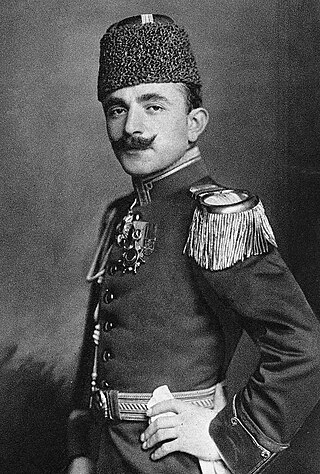
İsmail Enver, better known as Enver Pasha, was an Ottoman military officer, revolutionary, and convicted war criminal who formed one-third of the dictatorial triumvirate known as the "Three Pashas" in the Ottoman Empire.
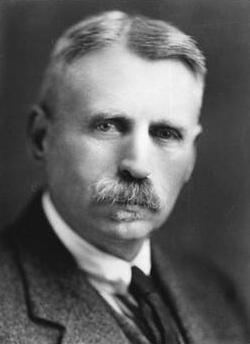
George Horton was a member of the United States diplomatic corps who held several consular offices in Greece and the Ottoman Empire between 1893 and 1924. During two periods he was the U.S. Consul or Consul General at Smyrna, 1911–1917 and 1919–1922. The first ended when the U.S. entered World War I and diplomatic relations with the Ottoman Empire were terminated. The second covered Greek administration of the city during the Greco-Turkish War. The Greek administration of Smyrna was appointed by the Allied Powers following Turkey's defeat in World War I and the seizure of Smyrna.

The Greek genocide, which included the Pontic genocide, was the systematic killing of the Christian Ottoman Greek population of Anatolia which was carried out mainly during World War I and its aftermath (1914–1922) on the basis of their religion and ethnicity. It was perpetrated by the government of the Ottoman Empire led by the Three Pashas and by the Government of the Grand National Assembly led by Mustafa Kemal Atatürk, against the indigenous Greek population of the Empire. The genocide included massacres, forced deportations involving death marches through the Syrian Desert, expulsions, summary executions, and the destruction of Eastern Orthodox cultural, historical, and religious monuments. Several hundred thousand Ottoman Greeks died during this period. Most of the refugees and survivors fled to Greece. Some, especially those in Eastern provinces, took refuge in the neighbouring Russian Empire.
George Wadsworth II was a United States diplomat, specializing in the Middle East.

Damat Mehmed Adil Ferid Pasha, known simply as Damat Ferid Pasha, was an Ottoman liberal statesman, who held the office of Grand Vizier, the de facto prime minister of the Ottoman Empire, during two periods under the reign of the last Ottoman Sultan Mehmed VI, the first time between 4 March 1919 and 2 October 1919 and the second time between 5 April 1920 and 21 October 1920. Officially, he was brought to the office a total of five times, since his cabinets were recurrently dismissed under various pressures and he had to present new ones. Because of his involvement in the Treaty of Sèvres, his collaboration with the occupying Allied powers, and his readiness to acknowledge atrocities against the Armenians, he became an unpopular figure in Turkey and emigrated to Europe at the end of the Greco-Turkish War.

Mustafa Abdülhalik Renda was a Turkish civil servant and politician of Tosk Albanian descent who was acting President of Turkey for one day after Atatürk's death in November 1938. He is infamously known for his role in the Armenian genocide.

Ahmet Muhtar Mollaoğlu was a Turkish diplomat and politician, who was the first ambassador of Turkey to the United States.

Mehmed Reshid was an Ottoman physician, official of the Committee of Union and Progress, and governor of the Diyarbekir Vilayet (province) of the Ottoman Empire during World War I. He is known for organizing the 1915 genocide of the Armenian and Assyrian communities of Diyarbekir. During the Allied occupation of Istanbul, Reshid was arrested and his roles in the massacres were exposed. He later escaped from prison, but committed suicide after being cornered by local authorities.
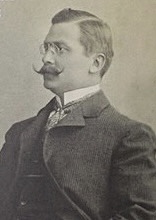
Ali Kemal Bey was a British-Turkish journalist, newspaper editor, poet, liberal-leaning politician, and government official who was for some three months Minister of the Interior in the government of Damat Ferid Pasha, the Grand Vizier of the Ottoman Empire. He was murdered by paramilitary officers during the Turkish War of Independence.
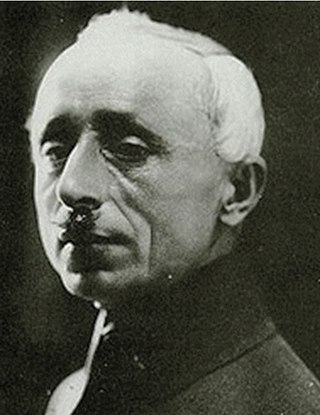
Refet Bele, also known as Refet Bey or Refet Pasha was a Turkish military commander. He served in the Ottoman Army and the Turkish Army, where he retired as a general.

Cemal Azmi, also spelled Jemal Azmi, was an Ottoman politician and governor of the Trebizond Vilayet (province) during World War I and the final years of the Ottoman Empire. He was one of the perpetrators of the Armenian genocide and was mainly responsible for the liquidation of Armenians in Trebizond Vilayet. He was known as the "butcher of Trebizond".
Oscar S. Heizer was an American diplomat who served in various posts as Consul General in the Ottoman Empire. Heizer, who was the Consul General in Trebizond during World War I, witnessed the Armenian genocide and often risked his own life to save the lives of Armenians.
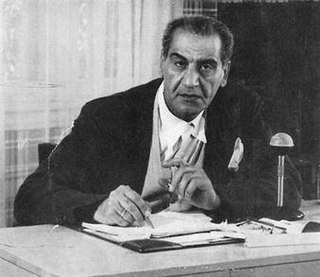
Gourgen Mkrtich Yanikian was an Armenian genocide survivor. He is best known for the assassination of two Turkish consular officials, Consul General Mehmet Baydar and Consul Bahadır Demir. The event took place in Santa Barbara, California in 1973.

Abdullah Nevzat Tandoğan was the fourth mayor and governor of Ankara serving between 1929 and 1946. He committed suicide upon a political scandal he was involved in.

Hüseyin Vasıf Çınar (1895–1935) was a Turkish educator, politician, journalist and diplomat.

Ahmet Rüstem Bey (1862–1934), born Alfred Bilinski, was an Ottoman diplomat who served as last Ottoman ambassador to the United States in 1914. Despite neither of his parents being ethnically Turkish, he himself was an ardent Turkish nationalist. He was "exceptionally high-strung and outspoken" and had a "propensity to challenge people to duels". Prior to his appointment as ambassador, he had already served twice in the United States capital, both times leaving in a hurry.
The United States established relations with North African countries and with the Ottoman Empire after 1780.

Fahreddin Reşad Bey, also known as Rumbeyoğlu Fahreddin Bey and Rumbeyoglu Fahr al-Din Bey, (1867–1943) was a Turkish diplomat and politician, who served as minister of education and minister of justice in the last Ottoman government.
Mustafa Shekib Bey, sometimes spelled Chekib, was an envoy of the Ottoman Empire to the United States.
Halil Hâlid was a Turkish writer, diplomat, academic and a member of the Ottoman Parliament. He was a teacher at the University of Cambridge in the United Kingdom and the University of Istanbul in Turkey.















